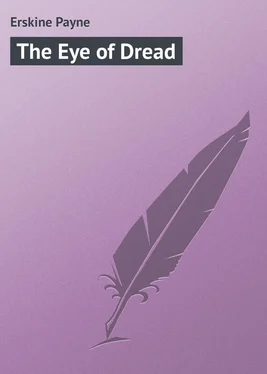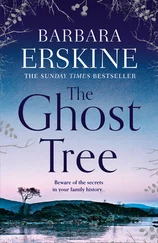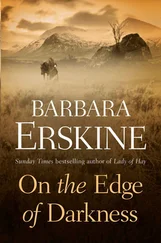Payne Erskine - The Eye of Dread
Здесь есть возможность читать онлайн «Payne Erskine - The Eye of Dread» — ознакомительный отрывок электронной книги совершенно бесплатно, а после прочтения отрывка купить полную версию. В некоторых случаях можно слушать аудио, скачать через торрент в формате fb2 и присутствует краткое содержание. Жанр: foreign_prose, на английском языке. Описание произведения, (предисловие) а так же отзывы посетителей доступны на портале библиотеки ЛибКат.
- Название:The Eye of Dread
- Автор:
- Жанр:
- Год:неизвестен
- ISBN:нет данных
- Рейтинг книги:4 / 5. Голосов: 1
-
Избранное:Добавить в избранное
- Отзывы:
-
Ваша оценка:
- 80
- 1
- 2
- 3
- 4
- 5
The Eye of Dread: краткое содержание, описание и аннотация
Предлагаем к чтению аннотацию, описание, краткое содержание или предисловие (зависит от того, что написал сам автор книги «The Eye of Dread»). Если вы не нашли необходимую информацию о книге — напишите в комментариях, мы постараемся отыскать её.
The Eye of Dread — читать онлайн ознакомительный отрывок
Ниже представлен текст книги, разбитый по страницам. Система сохранения места последней прочитанной страницы, позволяет с удобством читать онлайн бесплатно книгу «The Eye of Dread», без необходимости каждый раз заново искать на чём Вы остановились. Поставьте закладку, и сможете в любой момент перейти на страницу, на которой закончили чтение.
Интервал:
Закладка:
Erskine Payne
The Eye of Dread
BOOK ONE
CHAPTER I
BETTY
Two whip-poor-wills were uttering their insistent note, hidden somewhere among the thick foliage of the maple and basswood trees that towered above the spring down behind the house where the Ballards lived. The sky in the west still glowed with amber light, and the crescent moon floated like a golden boat above the horizon’s edge. The day had been unusually warm, and the family were all gathered on the front porch in the dusk. The lamps within were unlighted, and the evening wind blew the white muslin curtains out and in through the opened windows. The porch was low,–only a step from the ground,–and the grass of the dooryard felt soft and cool to the bare feet of the children.
In front and all around lay the garden–flowers and fruit quaintly intermingled. Down the long path to the gate, where three roads met, great bunches of peonies lifted white blossoms–luminously white in the moonlight; and on either side rows of currant bushes cast low, dark shadows, and here and there dwarf crab-apple trees tossed pale, scented flowers above them. In the dusky evening light the iris flowers showed frail and iridescent against the dark shadows under the bushes.
The children chattered quietly at their play, as if they felt a mystery around them, and small Betty was sure she saw fairies dancing on the iris flowers when the light breeze stirred them; but of this she said nothing, lest her practical older sister should drop a scornful word of unbelief, a thing Betty shrank from and instinctively avoided. Why should she be told there were no such things as fairies and goblins and pigwidgeons, when one might be at that very moment dancing at her elbow and hear it all?
So Betty wagged her curly golden head, wise with the wisdom of childhood, and went her own ways and thought her own thoughts. As for the strange creatures of wondrous power that peopled the earth, and the sky, and the streams, she knew they were there. She could almost see them, could almost feel them and hear them, even though they were hidden from mortal sight.
Did she not often go when the sun was setting and climb the fence behind the barn under the great locust and silver-leaf poplar trees, where none could see her, and watch the fiery griffins in the west? Could she not see them flame and flash, their wings spreading far out across the sky in fantastic flight, or drawn close and folded about them in hues of purple and crimson and gold? Could she not see the flying mist-women flinging their floating robes of softest pink and palest green around their slender limbs, and trailing them delicately across the deepening sky?
Had she not heard the giants–nay, seen them–driving their terrible steeds over the tumbled clouds, and rolling them smooth with noise of thunder, under huge rolling machines a thousand times bigger than that Farmer Hopkins used to crush the clods in his wheat field in the spring? Had she not seen the flashes of fire dart through the heavens, struck by the hoofs of the giants’ huge beasts? Ah! She knew! If Martha would only listen to her, she could show her some of these true things and stop her scoffing.
Lured by these mysteries, Betty made short excursions into the garden away from the others, peering among the shadows, and gazing wide-eyed into the clusters of iris flowers above which night moths fluttered softly and silently. Maybe there were fairies there. Three could ride at once on the back of a devil’s riding horse, she knew, and in the daytime they rode the dragon flies, two at a time; they were so light it was nothing for the great green and gold, big-eyed dragon flies to carry two.
Betty knew a place below the spring where the maidenhair fern grew thick and spread out wide, perfect fronds on slender brown stems, shading fairy bowers; and where taller ferns grew high and leaned over like a delicate fairy forest; and where the wild violets grew so thick you could not see the ground beneath them, and the grass was lush and long like fine green hair, and crept up the hillside and over the roots of the maple and basswood trees. Here lived the elves; she knew them well, and often lay with her head among the violets, listening for the thin sound of their elfin fiddles. Often she had drowsed the summer noon in the coolness, unheeding the dinner call, until busy Martha roused her with the sisterly scolding she knew she deserved and took in good part.
Now as Betty crept cautiously about, peering and hoping with a half-fearing expectation, a sweet, threadlike wail trembled out toward her across the moonlit and shadowed space. Her father was tuning his violin. Her mother sat at his side, hushing Bobby in her arms. Betty could hear the sound of her rockers on the porch floor. Now the plaintive call of the violin came stronger, and she hastened back to curl up at her father’s feet and listen. She closed her vision-seeing eyes and leaned against her father’s knee. He felt the gentle pressure of his little daughter’s head and liked it.
All the long summer day Betty’s small feet had carried her on numberless errands for young and old, and as the season advanced she would be busier still. This Betty well knew, for she was old enough to remember other summers, several of them, each bringing an advancing crescendo of work. But oh, the happy days! For Betty lived in a world all her own, wherein her play was as real as her work, and labor was turned by her imaginative little mind into new forms of play, and although night often found her weary–too tired to lie quietly in her bed sometimes–the line between the two was never in her thoughts distinctly drawn.
To-night Betty’s conscience was troubling her a little, for she had done two naughty things, and the pathetic quality of her father’s music made her wish with all the intensity of her sensitive soul that she might confess to some one what she had done, but it was all too peaceful and sweet now to tell her mother of naughty things, and, anyway, she could not confess before the whole family, so she tried to repent very hard and tell God all about it. Somehow it was always easier to tell God about things; for she reasoned, if God was everywhere and knew everything, then he knew she had been bad, and had seen her all the time, and all she need do was to own up to it, without explaining everything in words, as she would have to do to her mother.
Brother Bobby’s bare feet swung close to her cheek as they dangled from her mother’s knee, and she turned and kissed them, first one and then the other, with eager kisses. He stirred and kicked out at her fretfully.
“Don’t wake him, dear,” said her mother.
Then Betty drew up her knees and clasped them about with her arms, and hid her face on them while she repented very hard. Mother had said that very day that she never felt troubled about the baby when Betty had care of him, and that very day she had recklessly taken him up into the barn loft, climbing behind him and guiding his little feet from one rung of the perpendicular ladder to another, teaching him to cling with clenched hands to the rounds until she had landed him in the loft. There she had persuaded him he was a swallow in his nest, while she had taken her fill of the delight of leaping from the loft down into the bay, where she had first tossed enough hay to make a soft lighting place for the twelve-foot leap.
Oh, the joy of it–flying through the air! If she could only fly up instead of down! Every time she climbed back into the loft she would stop and cuddle the little brother and toss hay over him and tell him he was a baby bird, and she was the mother bird, and must fly away and bring him nice worms. She bade him look up to the rafters above and see the mother birds flying out and in, while the little birds just sat still in their nests and opened their mouths. So Bobby sat still, and when she returned, obediently opened his mouth; but alas! he wearied of his rôle in the play, and at last crept to the very edge of the loft at a place where there was no hay spread beneath to break his fall; and when Betty looked up and saw his sweet baby face peering down at her over the edge, her heart stopped beating. How wildly she called for him to wait for her to come to him! She promised him all the dearest of her treasures if he would wait until “sister” got there.
Читать дальшеИнтервал:
Закладка:
Похожие книги на «The Eye of Dread»
Представляем Вашему вниманию похожие книги на «The Eye of Dread» списком для выбора. Мы отобрали схожую по названию и смыслу литературу в надежде предоставить читателям больше вариантов отыскать новые, интересные, ещё непрочитанные произведения.
Обсуждение, отзывы о книге «The Eye of Dread» и просто собственные мнения читателей. Оставьте ваши комментарии, напишите, что Вы думаете о произведении, его смысле или главных героях. Укажите что конкретно понравилось, а что нет, и почему Вы так считаете.












